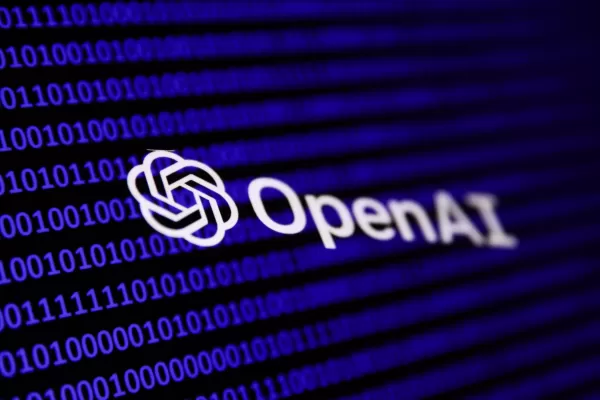OpenAI Introduces Flex Processing for Affordable AI Tasks with Reduced Speed

OpenAI Introduces Cost-Saving Flex Processing for AI Models
In a strategic move to enhance its competitive position, OpenAI has unveiled Flex processing - a new API tier that offers significantly reduced pricing in exchange for variable performance characteristics. This approach mirrors similar strategies employed by cloud computing providers, where customers can optimize costs by accepting variable resource availability.
Flex Processing Details
The new option provides:
- 50% cost reduction across all token processing
- Extended response times compared to standard processing
- Potential intermittent service availability
Pricing comparisons for current models:
Model Standard Input Flex Input Standard Output Flex Output o3 $10/M tokens $5/M tokens $40/M tokens $20/M tokens o4-mini $1.10/M tokens $0.55/M tokens $4.40/M tokens $2.20/M tokens
Target Use Cases
OpenAI positions Flex processing as ideal for:
- Experimental model testing
- Large-scale data processing
- Background analytical tasks
- Development environment workloads
Expanded Verification Requirements
Concurrent with the Flex launch, OpenAI has implemented new verification measures:
- Mandatory ID verification for tiers 1-3 users
- Access controls on advanced API features
- Enhanced policy enforcement mechanisms
The introduction of Flex processing occurs during a period of intense competition in the AI sector, with major providers including Google releasing optimized models like Gemini 2.5 Flash that emphasize price-performance ratios. OpenAI's move appears designed to maintain its market position while addressing growing cost sensitivity among developers.
Related article
 Sam Altman: ChatGPT Query Uses Minimal Water - Equivalent to 1/15 Teaspoon
In a Tuesday blog post exploring AI's global impact, OpenAI CEO Sam Altman revealed surprising statistics about ChatGPT's resource consumption, noting the average query uses approximately 0.000085 gallons of water - equivalent to roughly one-fifteent
Sam Altman: ChatGPT Query Uses Minimal Water - Equivalent to 1/15 Teaspoon
In a Tuesday blog post exploring AI's global impact, OpenAI CEO Sam Altman revealed surprising statistics about ChatGPT's resource consumption, noting the average query uses approximately 0.000085 gallons of water - equivalent to roughly one-fifteent
 US Senate Drops AI Moratorium from Budget Bill Amid Controversy
Senate Overwhelmingly Repeals AI Regulation Moratorium
In a rare show of bipartisan unity, U.S. lawmakers voted nearly unanimously Tuesday to eliminate a contentious decade-long prohibition on state-level AI regulation from landmark legislation orig
US Senate Drops AI Moratorium from Budget Bill Amid Controversy
Senate Overwhelmingly Repeals AI Regulation Moratorium
In a rare show of bipartisan unity, U.S. lawmakers voted nearly unanimously Tuesday to eliminate a contentious decade-long prohibition on state-level AI regulation from landmark legislation orig
 OpenAI Unveils Two Advanced Open-Weight AI Models
OpenAI revealed on Tuesday the release of two open-weight AI reasoning models, boasting capabilities comparable to its o-series. Both models are available for free download on Hugging Face, with OpenA
Comments (0)
0/200
OpenAI Unveils Two Advanced Open-Weight AI Models
OpenAI revealed on Tuesday the release of two open-weight AI reasoning models, boasting capabilities comparable to its o-series. Both models are available for free download on Hugging Face, with OpenA
Comments (0)
0/200

OpenAI Introduces Cost-Saving Flex Processing for AI Models
In a strategic move to enhance its competitive position, OpenAI has unveiled Flex processing - a new API tier that offers significantly reduced pricing in exchange for variable performance characteristics. This approach mirrors similar strategies employed by cloud computing providers, where customers can optimize costs by accepting variable resource availability.
Flex Processing Details
The new option provides:
- 50% cost reduction across all token processing
- Extended response times compared to standard processing
- Potential intermittent service availability
Pricing comparisons for current models:
| Model | Standard Input | Flex Input | Standard Output | Flex Output |
|---|---|---|---|---|
| o3 | $10/M tokens | $5/M tokens | $40/M tokens | $20/M tokens |
| o4-mini | $1.10/M tokens | $0.55/M tokens | $4.40/M tokens | $2.20/M tokens |
Target Use Cases
OpenAI positions Flex processing as ideal for:
- Experimental model testing
- Large-scale data processing
- Background analytical tasks
- Development environment workloads
Expanded Verification Requirements
Concurrent with the Flex launch, OpenAI has implemented new verification measures:
- Mandatory ID verification for tiers 1-3 users
- Access controls on advanced API features
- Enhanced policy enforcement mechanisms
The introduction of Flex processing occurs during a period of intense competition in the AI sector, with major providers including Google releasing optimized models like Gemini 2.5 Flash that emphasize price-performance ratios. OpenAI's move appears designed to maintain its market position while addressing growing cost sensitivity among developers.
 Sam Altman: ChatGPT Query Uses Minimal Water - Equivalent to 1/15 Teaspoon
In a Tuesday blog post exploring AI's global impact, OpenAI CEO Sam Altman revealed surprising statistics about ChatGPT's resource consumption, noting the average query uses approximately 0.000085 gallons of water - equivalent to roughly one-fifteent
Sam Altman: ChatGPT Query Uses Minimal Water - Equivalent to 1/15 Teaspoon
In a Tuesday blog post exploring AI's global impact, OpenAI CEO Sam Altman revealed surprising statistics about ChatGPT's resource consumption, noting the average query uses approximately 0.000085 gallons of water - equivalent to roughly one-fifteent
 US Senate Drops AI Moratorium from Budget Bill Amid Controversy
Senate Overwhelmingly Repeals AI Regulation Moratorium
In a rare show of bipartisan unity, U.S. lawmakers voted nearly unanimously Tuesday to eliminate a contentious decade-long prohibition on state-level AI regulation from landmark legislation orig
US Senate Drops AI Moratorium from Budget Bill Amid Controversy
Senate Overwhelmingly Repeals AI Regulation Moratorium
In a rare show of bipartisan unity, U.S. lawmakers voted nearly unanimously Tuesday to eliminate a contentious decade-long prohibition on state-level AI regulation from landmark legislation orig
 OpenAI Unveils Two Advanced Open-Weight AI Models
OpenAI revealed on Tuesday the release of two open-weight AI reasoning models, boasting capabilities comparable to its o-series. Both models are available for free download on Hugging Face, with OpenA
OpenAI Unveils Two Advanced Open-Weight AI Models
OpenAI revealed on Tuesday the release of two open-weight AI reasoning models, boasting capabilities comparable to its o-series. Both models are available for free download on Hugging Face, with OpenA





























